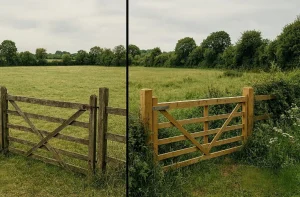In recent weeks, questions surrounding Sir Keir Starmer and inheritance tax have resurfaced, following renewed scrutiny over a seven-acre plot of land famously dubbed the “donkey field”.
This piece of land, purchased in 1996 and later sold in 2022, has become the subject of headlines and speculation regarding tax avoidance, family gifts, and whether legal loopholes were used to shield it from inheritance tax liability.
With the Labour Party conference underway, the story has gained momentum once more. But what are the facts? Did Keir Starmer legally avoid inheritance tax, or is the controversy more about perception than reality?
This article explores the timeline, legal implications, and expert opinions on the matter to separate truth from speculation.
Why Is Keir Starmer Facing Inheritance Tax Allegations Now?

The controversy around Keir Starmer and the inheritance tax allegations resurfaced during the Labour Party conference in 2024. Although the story had previously appeared in 2020, media outlets such as The Sunday Times and The Mail on Sunday reignited the discussion with new analysis, questioning whether Starmer had benefited from a legal structure that could have shielded part of his family estate from inheritance tax.
The renewed attention came after The Sunday Times published claims suggesting that Starmer may have set up a trust when gifting land to his parents. While the allegations do not suggest that Starmer broke any laws, they imply that he may have benefited from a legal mechanism that had inheritance tax implications. Given that the Labour Party has often campaigned on tax fairness and accountability, the optics of such a story became politically significant.
Did Keir Starmer Avoid Inheritance Tax Using A Legal Loophole?
The central claim is that Keir Starmer might have structured the ownership of a seven-acre field in a way that avoided including it in his parents’ estate for inheritance tax purposes. According to The Sunday Times, legal experts interpreted his use of the word “gifted” in relation to the land as possibly indicating the creation of a life-interest trust.
A life-interest trust is a legal arrangement in which a person retains the right to use an asset, such as land or property, for the duration of their life, even though they do not legally own it. When they pass away, the ownership reverts to the original owner or a third party. In this situation, the land would not be considered part of the parents’ estate for tax calculations.
Starmer has categorically denied setting up any form of trust. In his interview on BBC’s Sunday with Laura Kuenssberg, he stated:
“I bought a field for my mum and dad because they loved donkeys. My mum was very ill and couldn’t move around anymore.”
He later confirmed that he hired a King’s Counsel with expertise in taxation to review all relevant matters. That review found that no inheritance tax was owed, and there had been no underpayment.
What Was The Actual Value Of The Donkey Field Over Time?

One of the focal points of this controversy has been the alleged value of the field. While media sources like The Mail on Sunday estimated the land could be worth up to £10 million, this claim has been widely discredited.
The field was:
- Purchased in 1996 for £20,000
- Sold in 2022 for just under £300,000
This appreciation in value was largely due to inflation and rising land prices in the area, rather than any specific development or rezoning. The field remained agricultural land, primarily used as a sanctuary for a few donkeys, as requested by Starmer’s parents.
The idea that the field could have been valued in the millions likely stemmed from a misunderstanding of planning permission or commercial development potential, neither of which applied in this case.
Table: Field Value Over Time
| Year | Event | Value Estimate |
| 1996 | Purchased by Keir Starmer | £20,000 |
| 2020 | Media speculation | Up to £10 million |
| 2022 | Sold by Starmer | Just under £300,000 |
Did Starmer Declare The Land Properly To Parliament?
A second issue emerged when it was revealed that Keir Starmer had not declared the land to parliamentary authorities during his tenure as an MP. Parliamentary rules require members to declare assets that may present a financial interest or conflict. Starmer later acknowledged this was an oversight.
In 2022, he formally apologised and submitted a statement to the Parliamentary Standards Commissioner, explaining the nature of the land and its use. He clarified that although he allowed his parents to use the land for the remainder of their lives, the legal title had always remained in his name. This statement aligned with his public denial of having set up a trust.
No further action was taken by the Standards Commissioner, and the issue was resolved with the correction of the declaration.
What Is Starmer’s Explanation Behind Buying The Field?
Starmer’s reasoning for purchasing the field appears to have been deeply personal. His mother suffered from Still’s disease, an extremely rare and debilitating condition. By the end of her life, she was wheelchair-bound and had difficulty communicating.
The field behind their house was intended to give her a meaningful and comforting view of her beloved donkeys. Starmer explained that as a successful barrister at the time, he had the means to provide this small sanctuary for his parents.
He described how his father built a small structure on the edge of the field that allowed his mother to see and touch the animals from her wheelchair. According to Starmer, the decision had nothing to do with financial planning or tax minimisation. It was an act of kindness, not strategy.
Could Inheritance Tax Have Been Legally Avoided In This Case?

UK inheritance tax law includes several exemptions and thresholds that determine when and how tax is applied. These include:
- A standard nil-rate band of £325,000
- An additional residence nil-rate band of up to £175,000
- Agricultural property relief
- Gifts made more than seven years before death
In the case of Starmer’s parents, both of whom passed away before 2020, their combined estates were reportedly below the threshold at which inheritance tax would apply. Therefore, even if the land had been legally considered part of their estate, it is unlikely that any tax liability would have arisen.
Additionally, agricultural land like the donkey field may qualify for specific reliefs under HMRC guidelines, particularly if the land is not used for commercial purposes and remains in its original use.
Table: Inheritance Tax Thresholds in the UK
| Type of Relief | Threshold / Percentage |
| Standard Nil-Rate Band | £325,000 |
| Residence Nil-Rate Band | Up to £175,000 |
| Agricultural Property Relief | Up to 100% under conditions |
| Gifts (7-Year Rule) | Tax-free if given 7+ years prior to death |
Why Did Starmer’s Team Not Deny The Trust Earlier?
One of the criticisms raised by tax experts and political commentators is that Starmer’s team did not issue a categorical denial of the trust when initially questioned by The Sunday Times. Instead, the original statement given to the press was ambiguous, focusing on the purpose of the field and Starmer’s intentions rather than addressing the legal structure.
Dan Neidle, founder of Tax Policy Associates, remarked that this lack of a clear denial raised unnecessary suspicion and gave the story more traction than it might otherwise have received.
Starmer’s office later provided a definitive statement, asserting that no trust had been established, and that a tax expert had confirmed all matters were in order. They emphasised that at the time of purchase, Starmer was not thinking about tax implications but only about how to improve his parents’ quality of life.
How Does This Compare To Other Recent Political Tax Controversies?
This incident comes at a time when several political figures are being scrutinised over personal financial dealings. The resignation of former Deputy Prime Minister Angela Rayner, due to housing claims, created a climate in which every financial decision made by Labour leadership is placed under the microscope.
While Starmer’s case lacks evidence of wrongdoing or financial misconduct, it illustrates how even the appearance of impropriety can create political turbulence. In public life, especially during a general election lead-up, optics can be nearly as influential as facts.
Key comparisons between Starmer’s case and others in recent memory include:
- Transparency in property ownership and asset declarations
- Use of legal tax structures, even when within the law
- Delayed or incomplete communication with the public or regulatory authorities
Although the situations differ in substance, they collectively reflect a growing demand for full transparency from political leaders, particularly regarding personal wealth and taxation.
What Do Experts Say About Inheritance Tax And Political Figures?

Tax experts broadly agree that the issue with Keir Starmer is not a matter of legality but one of perception. While there is no evidence of tax evasion or legal wrongdoing, the lack of early clarity around the structure of the field’s ownership created unnecessary speculation.
Dan Neidle, a vocal commentator on the subject, concluded that even if a trust had existed, the tax impact would have been negligible due to the value of the estate. He maintained that while clearer communication earlier on might have helped avoid the controversy, the facts ultimately do not support any claims of tax avoidance.
Political figures are increasingly expected to go beyond compliance and demonstrate ethical leadership in financial matters. Inheritance tax, with its complexity and relative rarity, continues to be a flashpoint for public debate and media focus, particularly when connected to wealth, privilege, or political power.
Conclusion: What Does This Mean for Keir Starmer and the Labour Party?
The controversy over Keir Starmer and inheritance tax surrounding the so-called “donkey field” appears, on the surface, to be more about narrative than legality. No evidence has been presented suggesting that Starmer broke the law, and he has proactively sought legal counsel to ensure tax compliance.
That said, the incident highlights how personal financial decisions no matter how benign their intentions can become politically charged when transparency is not immediately forthcoming. As Labour seeks to present itself as a party of integrity and reform, cases like this serve as a reminder that perception can often carry as much weight as reality.
FAQs
What is inheritance tax and when does it apply in the UK?
Inheritance tax is a levy on the estate of a deceased person if its value exceeds £325,000, with additional allowances depending on property and spousal transfers.
Was Keir Starmer legally obligated to pay inheritance tax on the field?
There’s no indication that he was. Based on public information, his parents’ estates were below the taxable threshold at the time of their passing.
What is a life-interest trust and how could it affect tax?
A life-interest trust allows beneficiaries to use an asset for life without owning it, potentially removing it from their estate for tax purposes.
Did Keir Starmer profit from the land?
Yes. He bought it for £20,000 and sold it for nearly £300,000. However, he maintains that it was bought purely for his parents’ wellbeing.
Why wasn’t the land declared to Parliament earlier?
Starmer admitted it was an oversight. He later issued an apology and updated his records with the Parliamentary Standards Commissioner.
Could agricultural land be exempt from inheritance tax?
In some cases, yes. UK tax law allows exemptions for agricultural land if certain conditions are met, though this land may not qualify.
Has HMRC launched an investigation into the matter?
There is no public record of an HMRC investigation. Starmer consulted a tax KC who confirmed all due taxes were paid correctly.








